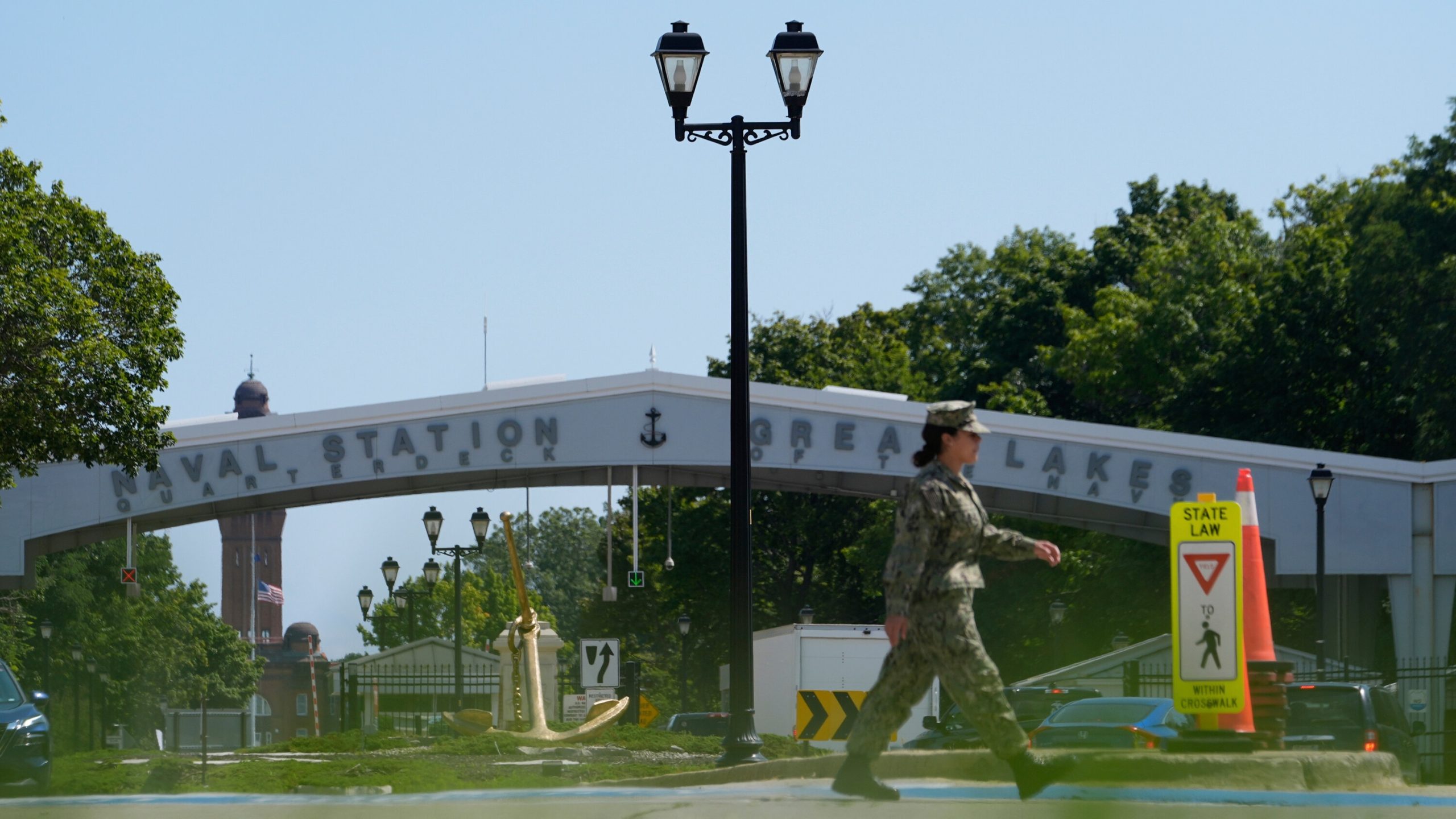The United States government has announced a major policy shift that could reshape immigration enforcement in the Midwest. A Navy base near Chicago is set to become the new federal hub for immigration operations, as the Biden administration responds to mounting political and social pressures over border security and migrant resettlement. This move underscores both the scale of the immigration challenge facing the country and the determination of federal authorities to tighten enforcement in urban centers far from the southern border.
- Why the Navy Base Was Chosen as a Federal Immigration Hub
- The Current State of Immigration in Chicago
- Impact on Migrant Communities
- Political Repercussions in Illinois and Beyond
- Historical Context: Military Bases and Immigration
- Community Response and Protests
- Expert Perspectives on the Immigration Crackdown
- What This Means for the Future of U.S. Immigration Policy
- FAQs
- Why is a Navy base being used for immigration enforcement in Chicago?
- How will this impact migrants in Chicago?
- What do local officials think about this decision?
- Has the U.S. used military bases for immigration before?
- What are the broader political implications of this move?
- Conclusion
For years, Chicago has been one of the nation’s most significant destinations for migrants, particularly those seeking refuge from violence and poverty in Latin America. As asylum seekers continue to arrive, the city has struggled to provide shelter, healthcare, and integration resources. Local officials, already overwhelmed, have clashed with federal agencies over responsibility and funding. The decision to repurpose a Navy base as a central hub represents a dramatic escalation, signaling Washington’s intent to centralize operations and bring new logistical power to the immigration crackdown.
This development raises important questions: What does it mean for migrants currently living in the Chicago area? How will it affect local communities? And what are the broader political implications as the nation grapples with one of its most divisive issues?
Why the Navy Base Was Chosen as a Federal Immigration Hub
The decision to use a Navy base for immigration enforcement is rooted in both strategy and practicality. Military installations offer secure, spacious facilities with existing infrastructure, making them ideal for rapid conversion into administrative and operational centers. In the case of Chicago, the Navy base provides proximity to both major transportation networks and immigrant communities, enabling quicker processing and enforcement actions.
Experts note that the move aligns with a broader federal trend of repurposing military resources for civilian challenges. “Bases like this one have the advantage of security, logistics, and space,” explained a former Department of Homeland Security (DHS) official. “It allows agencies to consolidate operations under one roof rather than scatter across multiple city offices.”
At the same time, the use of a Navy base carries heavy symbolism. It conveys seriousness and authority, reminding both migrants and the public that immigration enforcement is being treated as a matter of national security.
The Current State of Immigration in Chicago
Chicago has long been recognized as a “sanctuary city,” with policies designed to limit cooperation between local law enforcement and federal immigration authorities. City leaders have often emphasized compassion, integration, and the protection of immigrant rights. However, the recent influx of migrants has strained the system to its breaking point.
According to local officials, more than 25,000 migrants arrived in Chicago over the past two years, many bussed from southern border states like Texas. Shelters have overflowed, schools have scrambled to accommodate new students, and healthcare providers have reported unprecedented demand. Despite strong community efforts, resources are stretched thin.
The establishment of a federal immigration hub at the Navy base marks a new chapter in this unfolding story. Instead of relying solely on city programs, federal agencies will now have direct authority and operational capacity within the Chicago region. This shift could mean more deportations, faster processing of asylum claims, and stricter enforcement of immigration laws.
Impact on Migrant Communities
For migrant families, the Navy base hub could be both a source of fear and potential relief. On one hand, the expansion of federal enforcement capacity raises concerns about increased deportations and detentions. Advocates worry that the presence of a military installation as a processing hub will create a chilling effect, discouraging migrants from seeking legal aid or accessing essential services.
On the other hand, federal involvement could also bring more resources for managing asylum cases and providing structured housing. By centralizing operations, the government may reduce the chaotic overflow in shelters and improve coordination with state and city officials.
Community organizations remain cautious. “We understand the need for coordination,” said the director of a Chicago-based immigrant rights nonprofit. “But using a Navy base sends the wrong message. It treats migrants as a security threat rather than as human beings fleeing hardship.”
Political Repercussions in Illinois and Beyond
Immigration has become one of the defining political issues of the era, and Chicago is now a frontline in the debate. Illinois leaders are divided on the federal decision. Some lawmakers argue that the Navy base hub is necessary to restore order and alleviate the burden on local services. Others see it as an overreach that undermines the city’s sanctuary commitments.
Republicans have seized on the development as evidence that Democratic policies are failing. “If you need to turn a Navy base into an immigration hub, that shows the crisis is out of control,” one Republican congressman declared. Meanwhile, Democratic leaders have emphasized the need for federal assistance while expressing concern over militarization.
Nationally, the move could reverberate into the 2026 elections. Immigration consistently ranks among the top issues for voters, and high-profile actions like this tend to energize both sides of the debate. While some see the federal hub as a long-overdue step toward restoring control, others fear it represents a departure from humanitarian values.
Historical Context: Military Bases and Immigration
The use of military facilities for immigration purposes is not new. In the past, bases have been used to house refugees, detain migrants, and process asylum seekers. For example, during the Cuban refugee crisis of the 1980s, military bases in Florida became key processing centers. Similarly, in recent years, bases in Texas and California have temporarily hosted unaccompanied migrant children.
What sets the Chicago development apart is the scope and permanence being signaled. Rather than a temporary emergency measure, officials describe the Navy base hub as a long-term operational center. This suggests a significant policy shift toward embedding immigration enforcement deeper into the federal security apparatus.
Community Response and Protests
The announcement has already sparked community responses across Chicago. Activists have organized protests outside City Hall, demanding that immigration enforcement prioritize compassion and due process. “We will not allow our neighborhoods to become militarized zones,” one organizer declared during a recent rally.
At the same time, other community groups—particularly in neighborhoods heavily impacted by migrant arrivals—have expressed cautious support. For them, the federal government’s intervention represents much-needed relief from overcrowded shelters and underfunded programs.
Local residents near the Navy base itself have voiced mixed feelings. Some worry about increased traffic, security measures, and noise, while others welcome the jobs and federal investment that could accompany the new hub.
Expert Perspectives on the Immigration Crackdown
Policy experts remain divided on whether the Navy base strategy will succeed. Supporters argue that centralizing operations will improve efficiency and send a clear deterrent message to traffickers and unauthorized migrants. They note that decentralization has long plagued immigration enforcement, creating delays and confusion.
Critics counter that enforcement-heavy strategies rarely solve the underlying issues driving migration, such as violence, poverty, and instability in sending countries. “History shows that crackdowns shift routes but don’t reduce overall migration,” noted a researcher at the Migration Policy Institute. “If anything, they increase risks for migrants without addressing root causes.”
What This Means for the Future of U.S. Immigration Policy
The establishment of a Navy base as a federal immigration hub in Chicago is more than just a local story—it reflects a national trend toward hardening enforcement in response to political pressure. As migration flows continue, other urban centers may see similar moves, especially those struggling with large influxes of asylum seekers.
At the same time, the decision highlights the growing tension between local sanctuary policies and federal authority. Chicago’s experience may set a precedent for how these conflicts are resolved in other parts of the country.
Ultimately, the debate underscores a central paradox of U.S. immigration policy: balancing the need for enforcement with the nation’s tradition of welcoming those in search of safety and opportunity.
FAQs
Why is a Navy base being used for immigration enforcement in Chicago?
The Navy base offers secure facilities, logistical infrastructure, and proximity to major transportation networks. Federal authorities believe it is the most effective way to centralize immigration operations in the region.
How will this impact migrants in Chicago?
The impact could be mixed. While it may bring more resources for processing and housing, it also raises fears of increased deportations and a more militarized approach to immigration enforcement.
What do local officials think about this decision?
Illinois officials are divided. Some see it as a necessary step to manage the migrant influx, while others argue it undermines sanctuary policies and treats migrants as security threats.
Has the U.S. used military bases for immigration before?
Yes, military facilities have been used in the past for refugee housing and migrant processing, but the Chicago initiative is notable for its scale and the long-term nature of the plan.
What are the broader political implications of this move?
The new federal hub could influence national debates on immigration, fuel partisan divisions, and play a role in upcoming elections where immigration is expected to be a defining issue.
Conclusion
The transformation of a Navy base into a federal immigration hub for Chicago marks a pivotal moment in America’s immigration debate. It reflects the immense pressures faced by cities, the determination of federal authorities to reassert control, and the ongoing struggle to balance enforcement with humanitarian obligations. For Chicago, this new hub could bring both relief and controversy, reshaping the city’s role in the national immigration landscape.
As policymakers, communities, and migrants themselves adjust to this shift, one thing is clear: the debate over immigration is far from settled. The Navy base hub is not just a logistical solution—it is a symbol of the challenges and contradictions that define U.S. immigration policy today.









